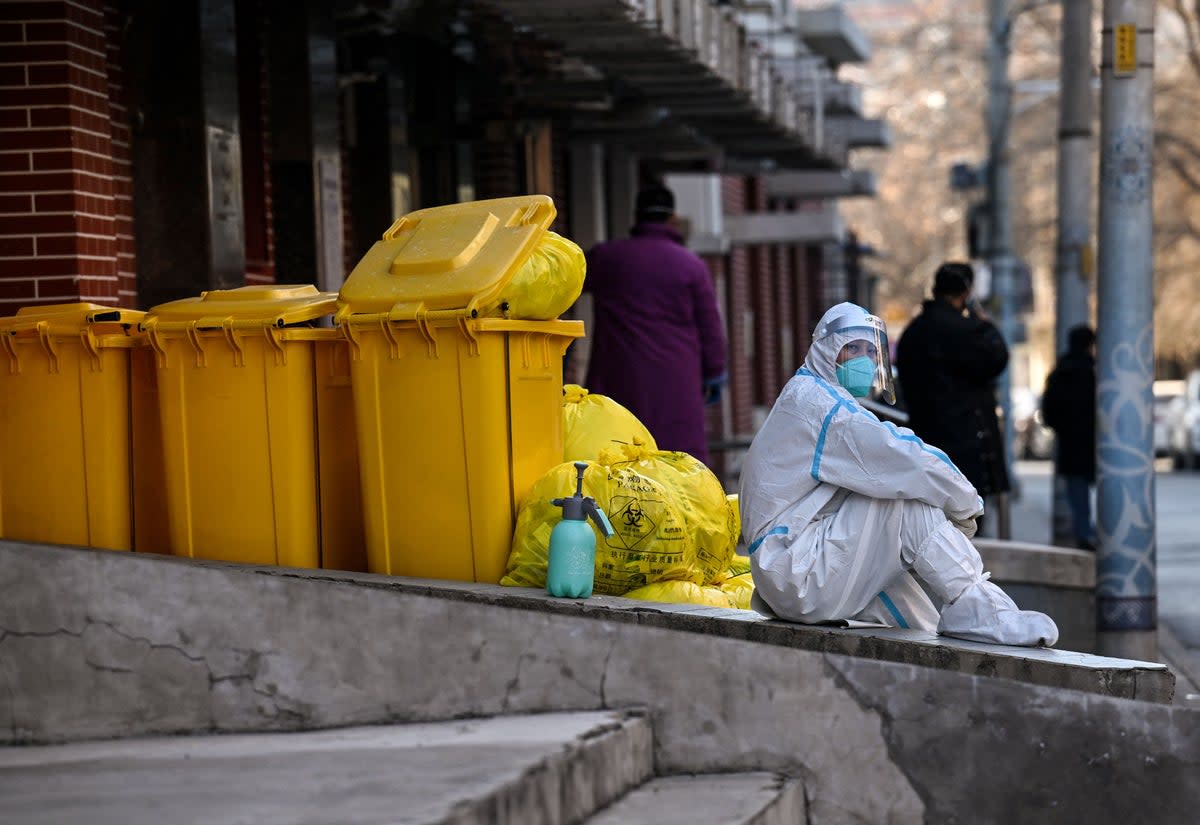China runs out of basic cold and fever medicines as it reports first Covid deaths since lifting restrictions

China confirmed at least two Covid-related deaths on Monday after it relaxed the strict lockdown restrictions as the virus tore through the country, overwhelming its hospitals and drug stores in the worst-ever coronavirus wave.
Across provinces, locals complained of being unable to find basic cold and fever medicines to fight Covid and its likely symptoms. Many waited over a week to receive medicine needed to treat their illness.
The National Health Commission (NHC) confirmed the two deaths on Monday, adding to a death reported at the beginning of the month.
Long queues were seen outside a designated Covid-19 crematorium on Saturday in Beijing, with many workers in hazmat suits carrying the dead inside the facility. It was not immediately clear if the deaths were caused due to the virus outbreak, which China avoided in the last two years due to its strict zero-Covid policy.
China has low vaccination rates among the elderly, health experts have said. More than 90 per cent of China’s population is vaccinated but its booster shot data shows only 57.9 per cent of people under the age of 80 and 42.3 per cent above that age bracket were inoculated against the virus.
Fan Weigou, a retired factory worker in eastern China, returned empty-handed from nearby drug stores and could not find medicines for his sick wife.
The 72-year-old was unable to get ibuprofen, aspirin, vitamin C, and not even watermelon frost lozenges to help soothe her throat.
Everything was sold out, he told the South China Morning Post.
The Covid deaths in the country are expected to surge past 1.5 million in the coming months, according to a paper published by the Shanghai Journal of Preventive Medicine, which warned that the toll could spike if China gets rid of curbs in the same way Hong Kong did this year.
There are reportedly discrepancies in China’s Covid death calculation as according to news outlet Caixin, two state media journalists died on Friday after catching the infection, followed by the death of a 23-year-old medical student.
Health officials have not confirmed which deaths were included in the toll.
Global health specialist Yanzhong Huang has called the official data presented by Beijing as “clearly an undercount of Covid deaths”.
This “may reflect the lack of state ability to effectively track and monitor the disease situation on the ground after the collapse of the mass PCR testing regime, but it may also be driven by efforts to avoid mass panic over the surge of Covid deaths”, the official working with US-based think tank Council on Foreign Relations said.
China saw a total of 1,995 symptomatic Covid infections on Sunday, the health commission said on Monday. A day earlier, 2,097 cases were reported.
However, the country has stopped reporting asymptomatic cases.
Meanwhile, hundreds of people, tired of the blanket lockdowns triggered by individual cases, recently took part in protests.
The country is seeing its health infrastructure crumble as witnessed in Europe, the US, Brazil and India in 2020 and 2021.
Monday morning saw a trending hashtag on two reported Covid deaths on Weibo, with many casting a doubt on the conservative death toll.
“What is the point of incomplete statistics?” asked one user. “Isn’t this cheating the public?” wrote another.
The virus has also struck the financial capital and China’s business corridors which are catching up with reduced lockdown restrictions, leading to many falling sick.
Japanese chipmaker Renesas Electronics Corp suspended work at its Beijing plant due to Covid infections, it said on Monday.
A 37-year-old university canteen worker Liu said 60-70 per cent of his colleagues are infected right now.
China’s economy is expected to grow 3 per cent this year, its worst performance in nearly half a century, battered thoroughly due to zero-Covid lockdowns and now sudden removal of restrictions allowing it to run rampant through the country’s vulnerable population.
The country is now in the throes of the first of the three Covid waves expected this winter, Chinese chief epidemiologist Wu Zunyou said on Saturday.


